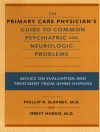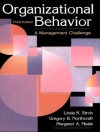This affordable paperback course textbook has been adapted from the landmark four-volume
Handbook of Applied Developmental Science (SAGE 2003), a work that offers a detailed roadmap for action and research in ensuring positive child, youth, and family development. In 20 chapters,
Applied Developmental Science: An Advanced Textbook brings together the latest in theory and application from applied developmental science and the positive psychology movement. This advanced text summarizes and synthesizes the best scientific knowledge from ADS to help readers understand the efforts being made around the world to ensure that all children and adolescents develop into healthy adults who contribute positively to society.
Key Features:
- Prominent researchers and practitioners offer state-of-the-art overviews of key areas within the relatively new field of applied developmental science.
- In consultation with instructors of applied developmental science and psychology courses, chapters from the 4-volume Handbook Of Applied Developmental Science (SAGE 2003) have been selected that best match syllabi for such courses.
- Chapters end with conclusions offering students summaries and future directions, along with references for further in-depth reading.
This new single-volume work will benefit students planning on careers working with children, youth, and families, generally within an educational or community setting. The text is also recommended for advanced undergraduate and beginning graduate students of Psychology, Human Development & Family Studies, Social Work & Human Services, Education, and related disciplines.
Table of Content
Preface
PART I. FOUNDATIONS OF APPLIED DEVELOPMENTAL SCIENCE
1. Historical and Theoretical Bases of Applied Developmental Sciences 1. Historical and Theoretical Bases of Applied Developmental Sciences – Wertlieb, & Jacobs
2. Neural Development and Lifelong Plasticity – Nelson
3. The Role of Positive Psychology in Child, Adolescent and Family Development – Shatte, Seligman, Gillham, & Reivich
4. Child and Youth Well-Being: The Social Indicators Field – Brown & Moore
5. Participant Consultation: Ethical Insights Into Parental Permissions & Confidentiality Procedures for Policy-Relevant Research With Youth – Fisher
PART II. ENHANCING INDIVIDUAL – CONTEXT RELATIONS
6. Families and Ethnicity – Mc Adoo and Martin
7. Positive Parenting and Positive Development in Children – Bornstein
8. Promoting Child Adjustment by Fostering Positive Paternal Involvement – Lamb, Chuang, & Cabrera
9. Ethnotheories of Parenting: At the Interface Between Culture and Child Development – Mistry, Chaudhuri, & Diez
10. Reforming Education: Developing 21st Century Community Schools – Blanck, Shah, Johnson, Blackwell, & Ganley
PART III. STRENGTHENING POLICIES AND PROGRAMS
11. The Role of Federal and State Governments in Child and Family Issues: An Analysis of Three Policy Areas – Capizzano & Stagner
12. Child Poverty in the United States: An Evidence-Based Conceptual Framework for Programs and Policies – Gershoff, Aber, & Raver
13. The Politics of Children′s Issues: Challenges and Opportunities for Advancing a Children′s Agenda in the Political Arena – Allen & Martinez
14. Juvenile Justice and Positive Youth Development – Schwartz
15. The Development of Young Children with Disabilities and Their Families: Implications for Policies and Programs – Hauser-Cram & Howell
PART IV. ENHANCING SERVICE SYSTEMS
16. Early Intervention and Family Support Programs – Eckenrode, Izzo, & Campa-Muller
17. Back To Basics: Building an Early Care and Education System – Kagen & Neuman
18. Child Welfare: Controversies and Possibilities – Mc Croskey
19. Housing: The Foundation of Family Life – Bratt
20. Philanthropy, Science, and Social Change: Corporate and Operating Foundations as Engines of Applied Developmental Science – Sherrod
Author Index Author Index
Subject Index
About the Editors
About the author
Donald Wertlieb, Ph.D., is Director of the Tufts University Center for Children and Professor and former Chairman of the Eliot-Pearson Department of Child Development. He is an applied developmental scientist with a background in clinical-developmental and pediatric psychology. His major research interests are understanding the complex processes by which children and families cope with stressors such as marital separation and divorce and chronic illness. In addition to his basic research, he conducts program evaluations of community partnerships and other collaborations. He was recently funded by the National Cancer Institute to develop a multimedia interactive health education curriculum aimed at preventing drug, alcohol, and nicotine abuse by young people. He served on the steering group of the National Forum on the Future of Children and Families and was president of the Society of Pediatric Psychology (1996-1999), a professional membership organization of about 1, 000 scholars and practitioners committed to the improvement of health care research and services for children and families. He has been interim chairman of the Department of Education at Tufts and a lecturer in the Department of Social Medicine and Health Policy at Harvard Medical School.












